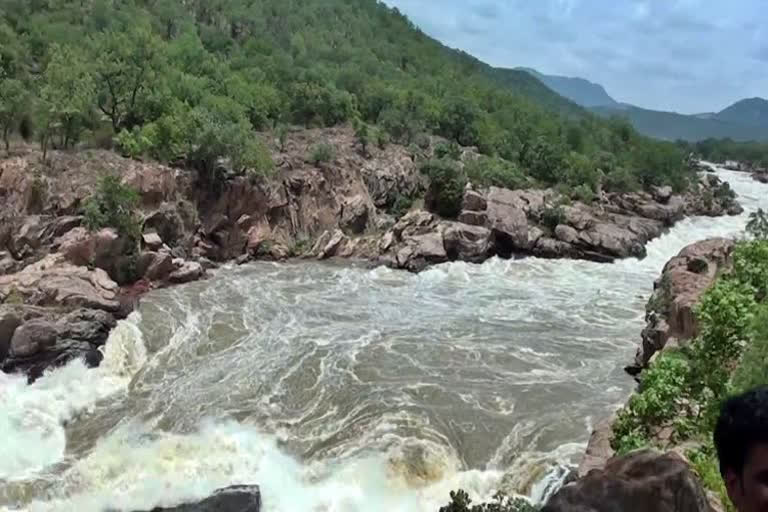Bengaluru: Mekedatu project remains a bone of contention between Tamil Nadu and Karnataka since 1960s. The project that was first envisaged as early as 1948 is still meddled in a tussle between the upper and lower riparian states with the former pitching the project for drinking water of Bengaluru city and electricity generation while the lower riparian state, Tamil Nadu contenting that Karnataka is planning to arrest the uncontrolled water flow due to the state from Kabini sub-basin and intends to divert it for irrigation.
Mekedatu means a goat's leap in Kannada where the broad Cauvery after converging its with its tributary Arkavathi at Sangama flows into a narrow gorge 3.5 kilometers downhill. The project was taken up for the study when the states were reorganized in 1956. It gained further traction in early 1960s when Tamil Nadu also mooted Hogenakkal project. But it went to back burner after both the states locked their horns in bitter Cauvery water dispute for almost two decades before rebounding in 1996 - 97 when both states held round of talks over the project.
After few years, the central government came up with the proposal of reviving it formulating a package of four projects in which two will be Tamil Nadu and another two in Karnataka. For next ten years, the states and centre were in discussions intermittently to execute the package. Tamil Nadu was determined that it will be part of discussions since the state favoured central agencies executing the projects without harming the orders of the Cauvery Water Disputes Tribunal (CWDT) on water-sharing. But Karnataka reiterated its stand on implementing Mekedatu on its own that triggered the stalemate.
Read: Karnataka to continue legal battle on Mekedatu project across Cauvery river
Cauvery Water Disputes Tribunal (CWDT) after noting these deliberatiosn between the states and National Hydro Power Corporation, in its final order in 2007 emphasized that whenever any such hydro-power project is constructed and Cauvery waters are stored in the reservoir, the pattern of downstream releases should be consistent with CWDT order so that the irrigation requirements are not harmed. In February 2018, the Supreme Court ruling also did not disturb this position.
Karnataka prepared a pre-feasibility report in 2019 with three broad objectives. The proposed balancing reservoir at Mekedatu with a capacity of 67.2 TMC water storage. The 99 meter tall dam with 674.5 meter width for cost of Rs 9000 crores proposes to regulate the release of the required quantum to Tamil Nadu on a monthly basis, as stipulated by the CWDT and the Supreme Court. The project also proposes to address the drinking water needs of the Bengaluru Metropolitan Region and the adjoining areas, in addition to generate 400 megawatt of electricity. A total of 3191.9 hectares of forest land will be used out of 5252 hectares the reserve forest. Five villages would be go under water once the project is implemented.
After Karnataka Chief Minister, B S Yediyurappa took up the implementation of the project, recently elected Tamil Nadu Chief Minister M K Stalin has written a letter to his counterpart in Karnataka to drop the project. In the recent development, opposition parties in Karnataka rallied behind Yediyurappa urging him to not compromise on the project while pressure is building on Stalin in Tamil Nadu to stall the project with legal methods.
Tamil Nadu is ready to buy the promise of Karnataka's regulated water supply from the proposed dam stating that Karnataka in going to divert the water for irrigation in guise of drinking water. The lower riparian state heavily depends on the run off between Krishnaraja Sagar - Kabini and Mettur for its irrigation since the dispute of sharing water comes to the fore with Tamil Nadu accusing Karnataka of not releasing water in time for agricultural activities.
Read: 'Drop Mekedatu project', TN Chief Minister MK Stalin urges Yediyurappa



